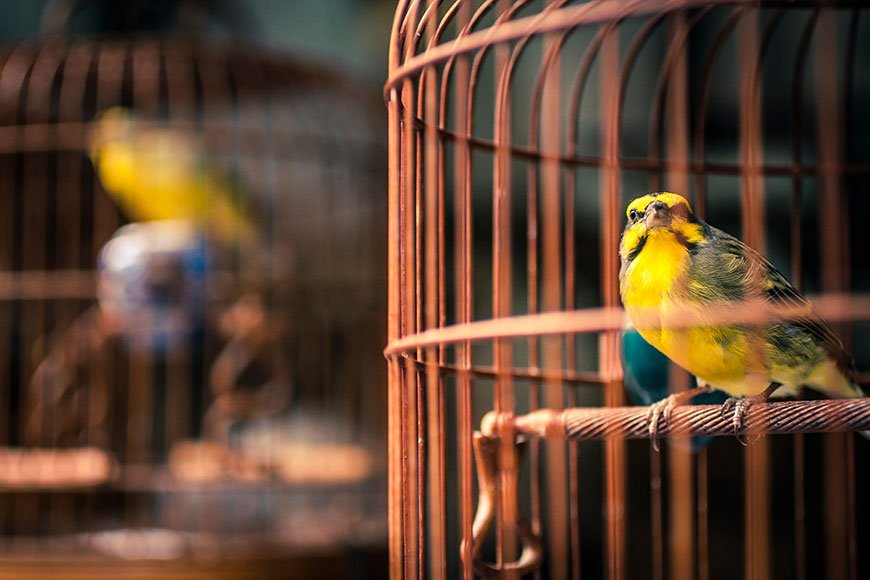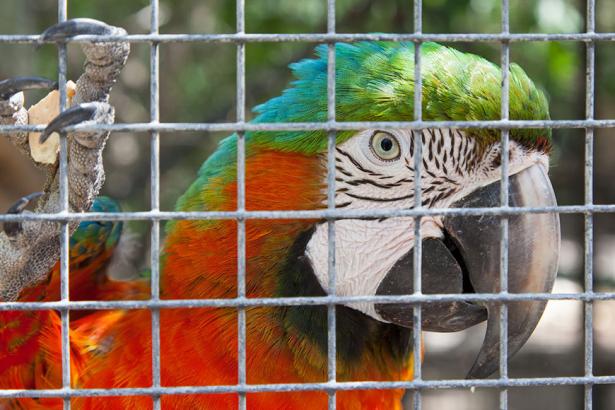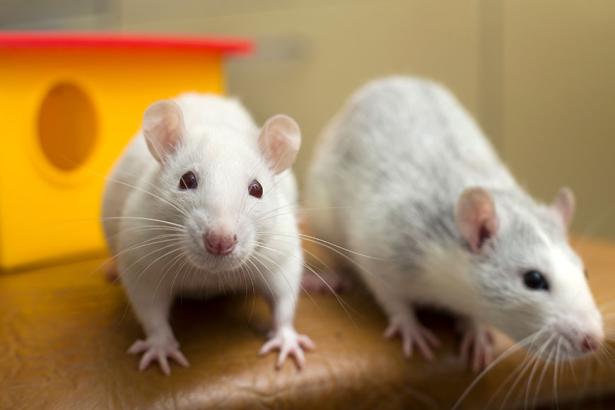SPRINGTIME DANGERS FOR CAGE AND AVIARY BIRDS
All pet birds benefit from weekly exposure to fresh air and sunshine. Many pet bird owners take advantage of the approaching warmer weather of springtime to allow their caged birds to enjoy an outside sunbathe. This is a great idea, as long as the birds in cages are not left unattended, as there are many predatory birds in the great outdoors such as currawongs, magpies, crows and goshawks. In the springtime breeding season, these predators are more dangerous than at other times of the year. In common with all wild birds, the predatory birds are raising their chicks and looking for food to sustain their hungry broods.
Smaller pet birds in cages hanging outside on balconies, verandas or patios are like “hors d’oeuvres” for the predators. When a predatory bird swoops on an unattended cage, housing a small bird, there is no protection or shelter for the pet. Terrorised, they flap uncontrollably about the cage to escape the predator. As their wings, feet or head touch the bars; the predator grabs with its beak or talons and pulls at their prey. The birds most at risk from predator attacks are the smaller pets (budgies, canaries, finches, love birds and cockatiels).
I am often presented with birds suffering injuries of varying degrees of severity from these attacks. Some victims suffer nothing more than minor abrasions. Others have eye injuries or are scalped. Many have dislocated or broken legs and wings. Some have wings that are “degloved” (the skin torn from the muscle). In very severe cases, birds have been decapitated or had their wings torn from their bodies. We must remember it is not the predators fault; they are doing what comes naturally i.e. taking advantage of an easy meal for their offspring. It is the pet bird owners’ responsibility to take steps to protect their pets from predators. That is why I am constantly reminding my clients not to leave their smaller caged birds outside, unattended. Birds in aviaries are less likely to suffer from attacks as there is more room within an aviary to escape from the predators.
Spring and summer are also the times when reptiles are active. Hungry carpet pythons and brown tree snakes pose another danger to caged birds left outside, unattended. Even larger birds such as galahs and cockatoos can be preyed upon by larger carpet pythons. Birds in aviaries are not immune from predation by snakes. It is necessary to make your aviary “snake proof” i.e. blocking up any areas that could enable a snake to enter the aviary.
By all means allow caged birds to enjoy some fresh air and sunshine but take care to protect them from the predators that exist naturally in the wild.
FAQs
Injuries can range from minor abrasions to more severe cases such as eye injuries, scalping, dislocated or broken legs and wings, and in very severe cases, decapitation or having their wings torn from their bodies. If your pet bird is injured, search for the best exotic pet vet near me to find an experienced veterinarian who can treat them.
If your bird has been attacked by a predator, it is important to immediately seek veterinary treatment from a vet experienced in avian care. The severity of injuries can range from minor abrasions to serious conditions like dislocated or broken legs and wings.
Reptiles, such as hungry carpet pythons and brown tree snakes, are more active during spring and summer and can pose a danger to caged birds left outside unattended. Even larger birds such as galahs and cockatoos can be preyed upon by large carpet pythons.
Pet bird owners should not leave their smaller caged birds outside unattended. Birds in aviaries are less likely to suffer from attacks as there is more room within an aviary to escape from the predators. It is also necessary to make your aviary “snake proof” by blocking up any areas that could enable a snake to enter the aviary.
It’s important to remember that predators are doing what comes naturally to them, i.e., looking for food, especially during their breeding season. It is the pet bird owners’ responsibility to take steps to protect their pets from predators.
Yes, you can still allow your caged birds to enjoy some fresh air and sunshine. However, you should take care to protect them from the predators that exist naturally in the wild.






Our lorikeet was attacked tonight by a small-medium carpet python. We managed to free her from the snakes coils within about one minute which felt more like one hour! She had stopped moving but seems ok now. She lost a few feathers in the scuffle, one looks snapped and has blood at the jagged end. Would the python have bitten the bird? Should she need antibiotics or what signs should I look for? She went back into her cage (which is now inside) on her own accord after an hour on my shoulder calming down. Thankyou